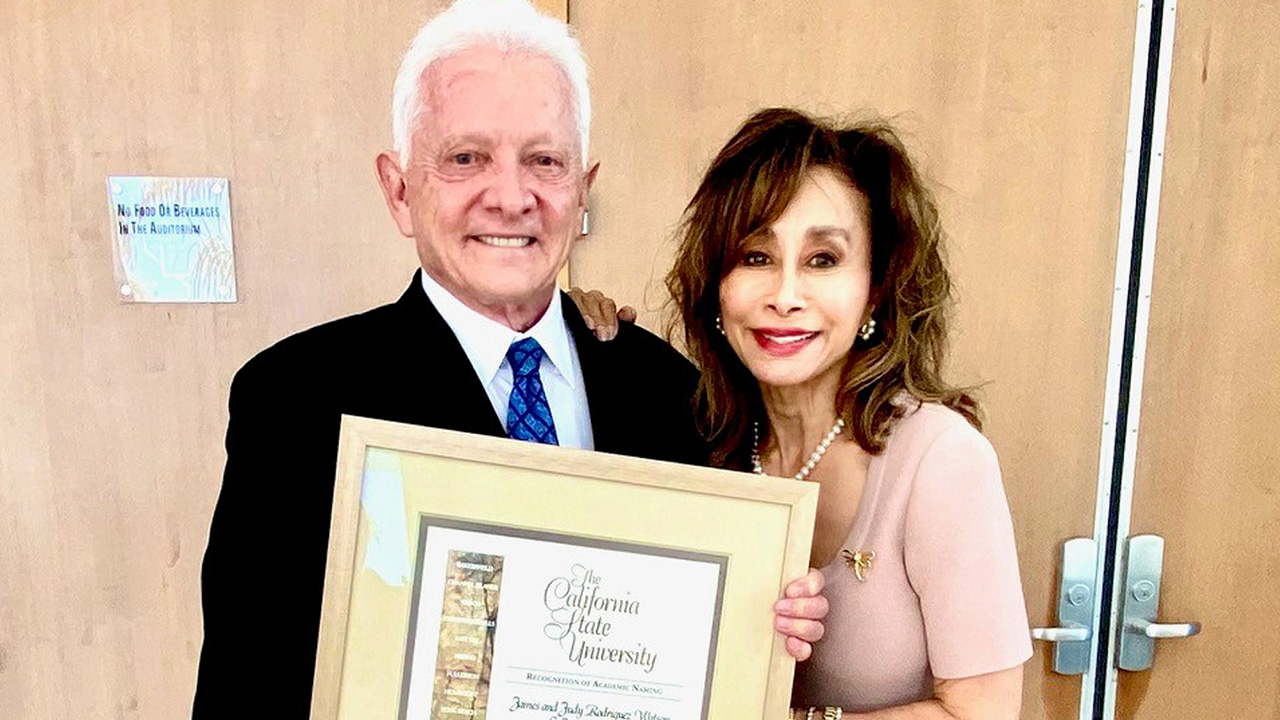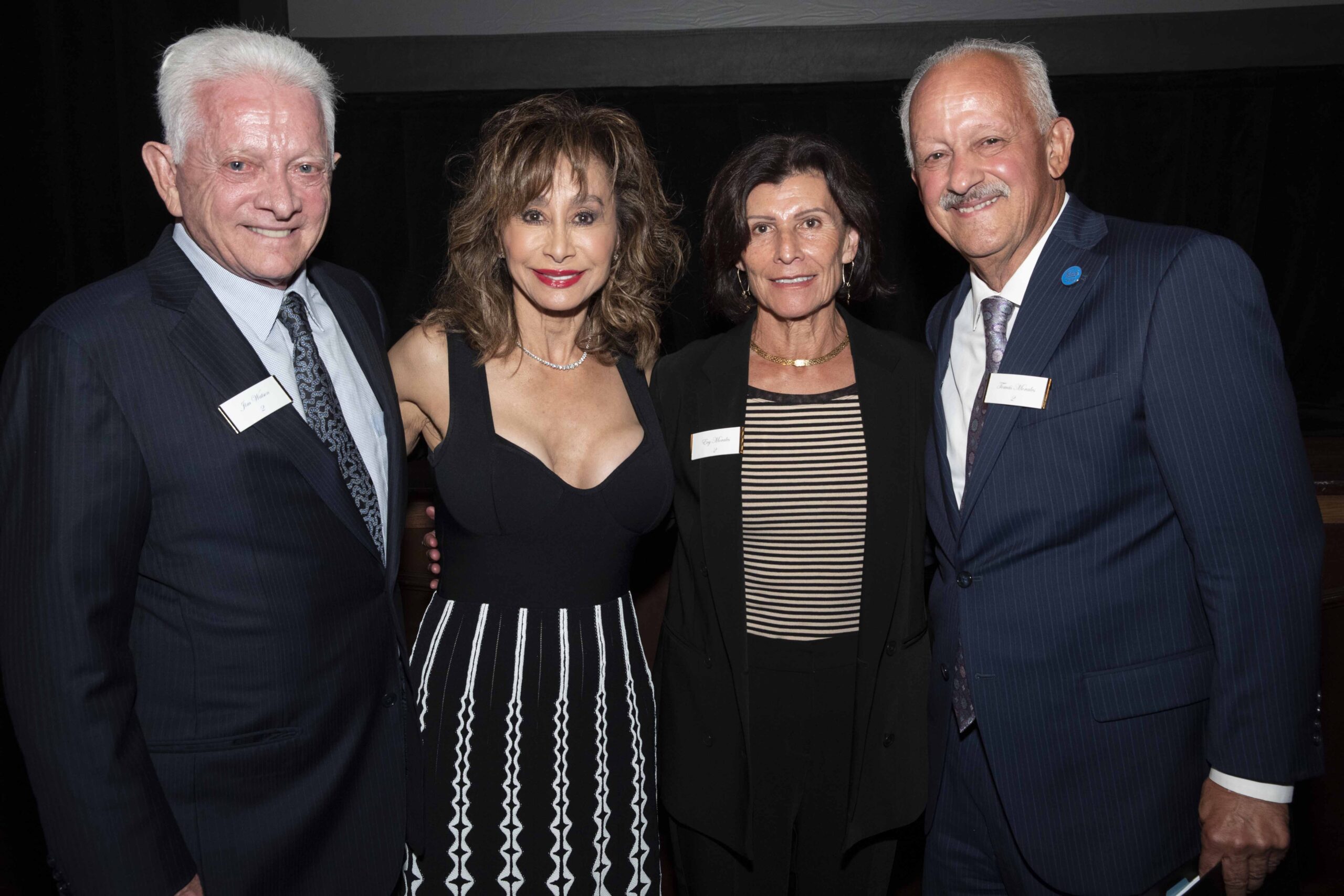Project Impact is the vision of James R. Watson and Judy Rodriguez Watson College of Education Dean Chinaka DomNwachukwu to locate, recruit, train, mentor and then deploy minority male teachers to classrooms throughout the inland area and the state.
– Courtesy of CSUSB
The goal of California State University, San Bernardino’s Project Impact, a community outreach initiative of the James R. Watson and Judy Rodriguez Watson College of Education, is direct: Help close the academic achievement gaps in the state’s K-12 schools, which will ultimately pay dividends in the classroom and its students through the recruitment, training and deployment of minority male teachers into California’s classrooms.
Project Impact was a vision that Watson College of Education Dean Chinaka DomNwachukwu brought with him when he came to CSUSB. It was born out of his own educational journey as a public school teacher in East Los Angeles in the 1990s. He knew firsthand how it felt to be the only Black male teacher on campus at the K-12 schools where he worked.
“Also knowing how my presence had a positive impact on the young Black men who were my students,” he added.
For over two decades in California, the academic achievement gap has been talked about. DomNwachukwu saw that bringing more men of color into the classroom could have a direct impact on closing that gap by increasing both graduation and college-going rates and decreasing drop-out rates.
When he sat down with CSUSB President Tomás D. Morales for his interview, DomNwachukwu told Morales, “I would like to design a program that targets African American men in teaching.”
Morales’ response? “Absolutely.”
And Project Impact was born.
Recognizing that the Inland Empire was predominantly a Hispanic community, DomNwachukwu knew he would need to extend his vision beyond the African American population. But he also knew that Hispanic students had similar experiences and faced similar issues to the population of students he had initially focused on.
Assistant Dean Becky Sumbera was on hand at the outset to help realize the vision. She came to DomNwachukwu’s office one day to discuss one of her students with him. This student, a young African American man, was enthusiastic at the start of the semester about training to become an English teacher. However, each week she watched him retreat further and further until, one day, he came to her and told her he was considering dropping out.
“Nobody gets me,” he said. “They are surprised I can write and read. I just don’t feel like I belong.” Sumbera immediately stepped in to connect him with an African American male mentor along with other resources that he needed to complete the program. This opened her eyes to the reality of the assumptions that people make based on the color of another individual’s skin.
She has been involved with the program ever since.
The program’s dedication and commitment to helping its students succeed can be seen through the work of Gregory Richardson, who serves as Project Impact’s interim director. Richardson, who is also the director of the Watson & Associates Literacy Center and a lecturer in the Watson College of Education’s doctoral studies program, “is doing a lot of leg work, connecting with the men, mentoring them, and holding Saturday workshops to enhance their skills and competencies.”
Richardson, who is in his third year at CSUSB, said Project Impact basically locates, recruits, trains and then deploys teacher candidates working with men of color – African American, Asian American, Hispanic Americans and Native Americans.
“Our intent is to help them succeed throughout the whole process,” Richardson said.
The program helps from the beginning when the students fill out the first application to apply to CSUSB, to helping them make the transition from the undergrad program or the liberal studies program into the credential program, helping them with that application process, Richardson said.
And once in the credential program, Project Impact provides tutoring if the students are having difficulty with the academics or curriculum. The program also puts the credential students in cohorts ensuring they are working closely with their colleagues, whether they’re taking the same course at the same time, but with the same instructor, with the same semester, or they’ve completed it before, Richardson said.
Richardson said he also has monthly meetings with the students.
“Our meetings are three hours long,” he said. “The first hour, the students basically talk amongst themselves and their cohorts about what’s working, what’s not working. They talk about the instructors, the course load.
“Basically, everything is going on the assignment just so they can succeed,” Richardson said. “And then during the second two hours that are left, I either have a guest speaker come in or I will speak myself on different topics that would help them.”
DomNwachukwu said he also knew that making a vision real requires partnerships across the community. He began building those partnerships with then-superintendent for Riverside County Schools, Judy White, who is a CSUSB alumna (’79). She now serves as a member of Project Impact’s board.
White had observed the achievement gaps for African American students in Riverside County and realized that it was time to listen to these students’ voices. A key issue was not having teachers who looked like them or, even more importantly, could not relate to them. In fact, the percentage of men of color in the county’s classrooms was not only incredibly low, it did not reflect student demographics.
Riverside provided the first Project Impact cohort of 10 in the spring of 2020. Currently, Project Impact is now on its fourth cohort, which began in fall 2022 with 30 men.
Replicability is key. DomNwachukwu wished to create a model that other areas could adopt to grow the number of male teachers of color in their classrooms, too. The intent to partner with even more school districts is both for collaboration and for them to “grow their own.”
As the program has continued, a further obstacle in training male teachers of color to become successfully credentialed in California has been identified: rigorous postbaccalaureate state requirements mean teaching applicants cannot hold down another job while they are in their 16-week clinical practice stage. Two members of the first cohort, for example, had to drop out because they could not manage their living expenses during the program without paid income.
White observed the same thing. “It’s not just the cost of tuition. It also includes tuition, books and accelerating their opportunity to be hired.”
Therefore, Project Impact is looking into the possibility of evolving into a paid internship. Participants would then not have to worry about covering tuition and books as well as their living costs.
Sumbera continues to actively follow up with the program’s graduates. Current and past cohort members are invited to serve on panels at conferences, allowing participants to share their stories and serve as exemplars for men of color.
A recent Project Impact three-person panel was composed of a new cohort member, one in their second semester and a graduate.
“You could see the growth in confidence across these three individuals, confidence they had gained in telling their story over the course of their Project Impact training,” Sumbera said. “It was an amazing demonstration of the effectiveness of the program.”
White remains fully committed to this initiative. “I am so impressed by the caliber and passion of the people we are recruiting,” she said.
She said she believes this will change the lives of students, especially those who come from communities where they do not see positive role models of men of color.
“They will see those models in their classrooms,” White said.
DomNwachukwu underscored his appreciation for ongoing community support for Project Impact. Growing Inland Achievement has been on board from day one. Other entities include BLU Educational Foundation, Schools First Credit Union and the San Bernardino County Office of Education.
Project Impact is no longer a small program belonging exclusively to CSUSB’s Watson College of Education. In fact, under the college’s direct leadership, it now belongs to the Inland Empire. And maybe, soon, even beyond.
Visit the Project Impact website for additional information.





